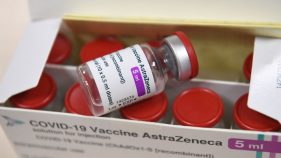
Experts don’t know yet how long COVID-19 vaccination will be effective. Studies of two prominent COVID-19 vaccines suggest they remain effective for at least six months. The chief executive of one vaccine maker said immunity may start to fade within a year. One of the most pressing questions about COVID-19 vaccines is how long they can provide protection.
It may be decades or a matter of months the data necessary to figure that out is accumulating every day. Pfizer’s chief executive said recently that after a few regimens of doses immunity will probably start to fade within a year.
According to the World Health Organization, it’s simply too early to know the exact duration of COVID-19 vaccines because both the disease and the science deployed against it aren’t yet fully understood. But some early evidence is promising. The viruses that caused MERS and SARS are closely related to the COVID-19 virus, and acquired immunity to both of those diseases has proven relatively durable. In terms of coronavirus research, Pfizer and BioNTech said earlier in April that their vaccines remain effective for at least half a year after the second dose and a study of Moderna’s version reflected a similar duration.
Immunization efforts will have to play out further before we can know more for certain. The window of immunity enabled by vaccines could have an impact on efforts to fully reopen the global economy, and re-establish a sense of normalcy. For now, much of the focus has been on getting that first dose on arms, something many countries are still waiting for. Although we’ve seen mounting criticism over the pace of vaccinations in Europe and elsewhere, North America is still clearly better off than much of the world.
People from wealthy countries who have been at the frontline for vaccines have instantly become test subjects for assessing the duration of vaccination protection against COVID-19. Booster shots will help address what will likely be a slow decline of immunity over time. In this way, coronavirus may look a lot like the flu- which also produces variants and can be addressed with a yearly shot formulated to deal with the latest mutations. historically, other diseases have been quelled in part, thanks to surprisingly lasting periods of immunity.
Memory B cells needed for protection against being re-infected with the deadly Spanish flu that spread around the world in 1918 endured for nearly 90 years, according to one study. And research showed that memory B cells are necessary to protect against re-infection with smallpox last about 60 years following immunization. Relatively shorter periods of established immunity won’t diminish a COVID-19 vaccine development effort that’s widely recognized as an extraordinary achievement- and should only increase the public’s faith in the positive impact of science.
The messaging surrounding COVID-19 vaccines are as important as the science behind them, according to the World Economic Forum’s analysts. And this certainly true when it comes to explaining why the US recently paused the Johnson & Johnson vaccine following reports of extremely rare side effects. Even if they had abundant access to vaccines, would some Europeans take them? France, home to the French chemist and discoverer of the principles of vaccination Louis Pasteur and a universal health care system, has also become home to a surprising degree of vaccine resistance.
Bhutan’s first vaccine dose was administered to a woman amid the chants of Buddhist prayers in March. Since then the country has vaccinated more than 93 percent of its adult population. For many Nigerians, it’s hard to feel the momentousness of the season through which we’re now living; strangely, the world is uncertain in their celebration of the new COVID-19 vaccines. Experts are still investigating others who are most vulnerable to coronavirus infections apart from those nursing diabetes, pneumonia and hypertension.
END

Be the first to comment